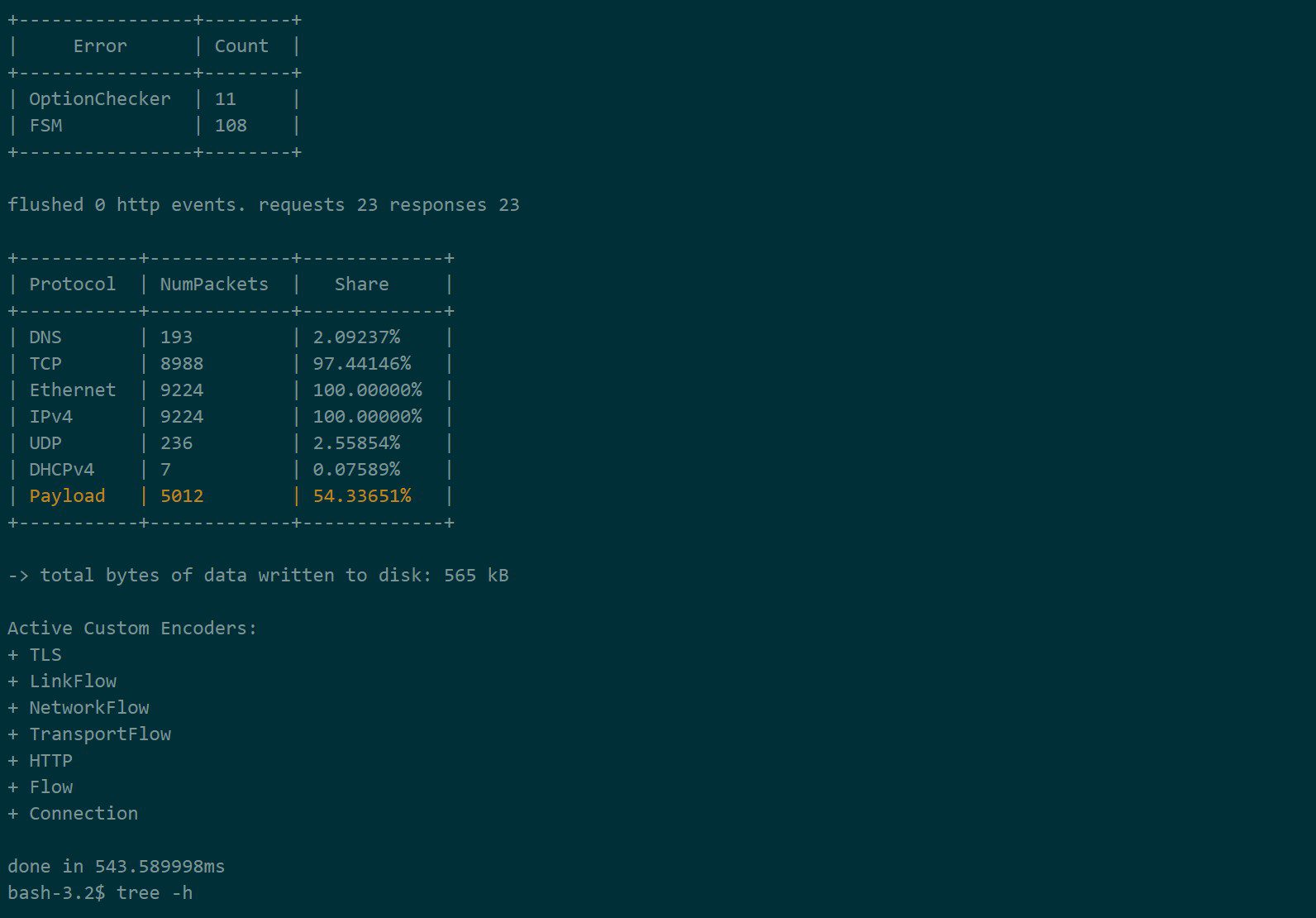netcap v0.6.11 releases: framework for secure and scalable network traffic analysis

The Netcap (NETwork CAPture) framework efficiently converts a stream of network packets into highly accessible type-safe structured data that represent specific protocols or custom abstractions. These audit records can be stored on a disk or exchanged over the network, and are well suited as a data source for machine learning algorithms. Since parsing of untrusted input can be dangerous and network data is potentially malicious, implementation was performed in a programming language that provides a garbage collected memory safe runtime.

It was developed for a series of experiments in my bachelor thesis: Implementation and evaluation of secure and scalable anomaly-based network intrusion detection. Currently, the thesis serves as documentation until the wiki is ready, it is included at the root of this repository (file: mied18.pdf). Slides from my presentation at the Leibniz Supercomputing Centre of the Bavarian Academy of Sciences and Humanities are available on researchgate.
The project won the 2nd Place at Kaspersky Labs SecurIT Cup 2018 in Budapest.
Netcap uses Google’s Protocol Buffers to encode its output, which allows accessing it across a wide range of programming languages. Alternatively, the output can be emitted as comma separated values, which is a common input format for data analysis tools and systems. The tool is extensible and provides multiple ways of adding support for new protocols while implementing the parsing logic in a memory-safe way. It provides high dimensional data about observed traffic and allows the researcher to focus on experimenting with novel approaches for detecting malicious behavior in network environments, instead of fiddling with data collection mechanisms and post-processing steps. It has a concurrent design that makes use of multi-core architectures. The name Netcap was chosen to be simple and descriptive. The command-line tool was designed with usability and readability in mind and displays progress when processing packets.
Netcap files have the file extension .ncap or .ncap.gz if compressed with gzip and contain serialized protocol buffers of one type. The naming of each file happens according to the naming in the gopacket library: a short uppercase letter representation for common protocols, and a camel case version full word version for less common protocols. Audit records are modeled as protocol buffers. Each file contains a header that specifies which type of audit records is inside the file, what version of Netcapwas used to generate it, what input source was used and what time it was created. Each audit record should be tagged with the timestamp the packet was seen, in the format seconds.microseconds. The output is written to a file that represents each data structure from the protocol buffers definition, i.e. TCP.ncap, UDP.ncap. For this purpose, the audit records are written as length delimited records into the file.
Changelog v0.6.11
- 39a85c6 fix: netbios panic on malformed packet, use latest libprotoident and added install script, updated containers, logging improvements, chore
- aaeec39 v0.6.11 release
Install && Use
Copyright (C) 2018 dreadl0ck





